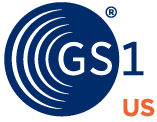Auburn University RFID Lab Partners with GS1 US and Industry to Explore the Use of RFID and Blockchain to Improve Supply Chain Efficiency
AUBURN, AL and EWING, NJ - March 4, 2020 - The Auburn University RFID Lab, in collaboration with GS1 US, completed a proof-of-concept that demonstrates the effectiveness of blockchain and radio frequency identification (RFID) technologies to improve serialized data sharing in the retail industry. Participating companies included: Nike, PVH Corp., Herman Kay, Macy’s, Kohl’s, Mojix, Avery Dennison, SML, IBM and Collaboration, LLC. The complete findings are available in a new white paper titled “Chain Integration Project (CHIP) Proof of Concept.”
The researchers examined the exchange of serialized product data between paired brands and retailers. The findings confirmed that a blockchain network was capable of sharing item-level data encoded in RFID tags between the participants. According to the white paper, the automation of serialized product data exchange using blockchain can potentially eliminate the need for human audits and counting, increasing the productivity and efficiency of the retail supply chain. As documented in Project Zipper, a 2018 Auburn University RFID Lab study and a precursor to CHIP, the presence of serialized data in the supply chain has grown rapidly as more brands adopt RFID tags and infrastructure to collect information on individual items flowing through their facilities. However, industry stakeholders reported poor item-level visibility due to a lack of data sharing. CHIP provides evidence that blockchain technology, in combination with a GS1 data-sharing standard called EPCIS (Electronic Product Code Information Services), allows partners to transmit data more directly and efficiently, while maintaining ownership of their data.
“CHIP is truly groundbreaking because it provides a vision into the future of information exchange in retail,” said Justin Patton, director, the Auburn University RFID Lab. “By exploring the intersection of RFID and blockchain technology, we’ve taken an important step in our mission to help rid the retail supply chain of costly errors and inefficiencies caused by outdated processes and legacy systems.”
“More widespread data sharing can unite the retail supply chain, however, blockchain technology is only as useful as the data that is shared by industry stakeholders,” said Angela Fernandez, vice president of community engagement, GS1 US. “Now that CHIP has confirmed the viability of using EPCIS to communicate serialized item data across the supply chain, adhering to a GS1 Standards-based framework is more important than ever.”
Later this year, the Auburn University RFID Lab will launch a follow-up pilot study, focusing on the financial implications of data exchange automation. Participants and researchers will more specifically test how a blockchain-based, serialized data solution can help eliminate claims and chargebacks that occur between brands and retailers.
For more information about CHIP, please visit https://rfid.auburn.edu/. To learn more about the role of GS1 Standards to support blockchain implementations, please visit www.gs1us.org/blockchain.
About the Auburn University RFID Lab
The Auburn University RFID Lab focuses on the business value of RFID and other sensor identification technologies. Founded in 2005, the Lab works to bridge the gap between industry and academia. The Lab is uniquely partnered with most of the leaders driving RFID adoption across retail and aviation with projects from Delta Airlines, Walmart, JC Penney, Bloomingdale’s, Boeing and many others. Additionally, the Lab maintains educational touring facilities and hosts over 1,000 visitors per year to learn about the technology and test for feasibility in various environments. Finally, the lab houses the ARC program, which is the most widely used program for validating RFID tag performance and quality globally. For more information, visit https://rfid.auburn.edu.
About GS1 US
GS1 US®, a member of GS1 global, is a not-for-profit information standards organization that facilitates industry collaboration to help improve supply chain visibility and efficiency through the use of GS1 Standards, the most widely used supply chain standards system in the world. Nearly 300,000 businesses in 25 industries rely on GS1 US for trading partner collaboration that optimizes their supply chains, drives cost performance and revenue growth, while also enabling regulatory compliance. They achieve these benefits through solutions based on GS1 global unique numbering and identification systems, barcodes, Electronic Product Code (EPC®)-based RFID, data synchronization and electronic information exchange. GS1 US also manages the United Nations Standard Products and Services Code® (UNSPSC®). For more information, please visit www.gs1us.org.

